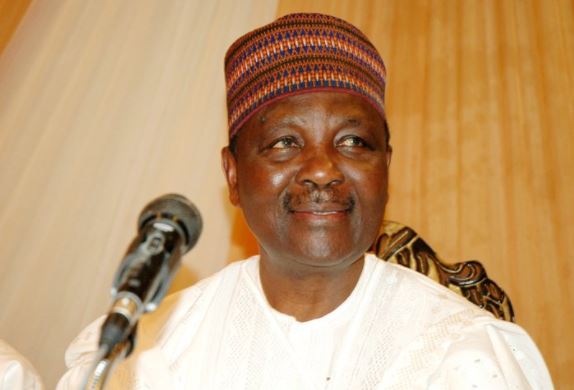A former Head of State, Yakubu Gowon, says he could have made Jos, Plateau State, the capital of Nigeria but refused to do so for fear of being seen as parochial.
Mr. Gowon, who ruled Nigeria for nine years from 1966 to 1975, however said his only regret was that he did not move the capital from Lagos even though his administration conceived the idea of the movement.
Mr. Gowon said these in Abuja at the 26th anniversary exhibition and commemoration of the movement of the seat of government from Lagos to Abuja. The exhibition was titled ‘From Dodan Barracks to Aso Rock’. According to a report in Vanguard newspaper on Wednesday, Mr. Gowon said he did not make Jos the capital because he was afraid of being accused of parochialism, given the fact that Jos was close to his place of birth.
“I had powers to make Jos, and not Abuja, the capital of Nigeria but refused to do so because I was not prepared to be clouded by sentiments and selfishness”, he said.
He also said he did not use his power as Head of State to appropriate land for his personal use. He said he took these decisions because of his conviction that personal interest should not override national interest, stressing that the idea of moving the seat of Nigeria’s government from Lagos to Abuja was conceived by his government in 1974.
“Those who were passionate about the ideas, such as the late General Murtala Mohammed, continued with the project after I left government.
“One of the places I saw that attracted me was somewhere in Plateau, those of you who know the place, especially close to Jos forest, will agree that the area is beautiful and I thought that place was beautiful for the capital city. But I did not make that choice because I would have been accused of parochialism and favoritism, because it was very close to the original place where I come from.
“I must look at other places, the search for a new capital took me round the North-west, and in my state, I continued to look for other places. When I came to Abuja, I was attracted,” he said. Mr. Gowon lamented that despite being the initiator of the idea that gave birth to the present Federal Capital Territory, successive governments marginalized him by not naming any street after him until he officially complained to former Military President, Ibrahim Babangida.
He said he suspected the reason for such treatment was because some military officers who were close to the government alleged that he had a hand in the death of Mr. Mohammed, who was assassinated in an abortive coup just over six months after he overthrew Mr. Gowon.
“I had to officially complain to General Ibrahim Babangida when he was the Military President, that I have been excluded from getting a street named after me in Abuja, while all other members of the military council who nurtured the idea had got streets name after them,’’ he said.
He said to ensure that the project of moving the capital from Lagos to Abuja was not frustrated, he instructed Shehu Shagari, who was his Minister of Finance, to set aside funds from the excess funds for the purpose of pursuing the dream.
Meanwhile, the Minister of the Federal Capital Territory, Mohammad Bello, who was represented at the occasion by the FCT Permanent Secretary, Christian Ohaa, said the theme of the exhibition was apt and provided the platform for strategic evaluations of the giant steps after 26 years of the relocation.
Mr. Bello said the developmental strides in Abuja did not come by chance but by painstaking sacrifices of the founding leaders.
He said the current system of funding infrastructure through statutory allocation was no longer sustainable, adding that government might consider other options in developing the city. “It is important that we note that the current system of funding infrastructure through statutory allocation is, indeed, not sustainable, this is because the fund is no longer there. Government has done so much to drive development and brought the city to this point. The time has come for the private sector to drive the new process,’’ he concluded.
From 1914 to 1991, Lagos was the seat of power of Nigeria and served as both its political and economic capital. The plan for the movement of the capital from Lagos to Abuja was initiated by Mr. Mohammed but it was not actualized until 1991 during the regime of Mr. Babangida.
Source: Premium times



